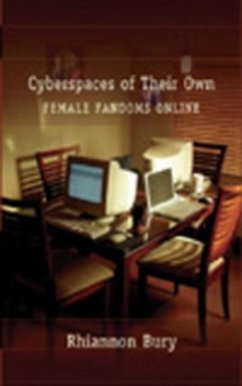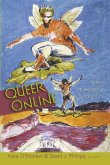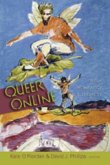Cyberspaces of Their Own interrogates the social and spatial relations of the rapidly expanding virtual terrain of media fandom. For the first time, issues of identity, community and space are brought together in this in-depth ethnographic study of two female internet communities. Members are fans of the American television series The X-Files and the Canadian series Due South. Forging links between media, cultural and internet studies, this book examines negotiations of gender, class, sexuality and nationality in making meaning out of a television show, producing fiction based on television characters, creating and maintaining online communal relations, and organizing cyberspace in a way that marks it out as alternative to that which surrounds it.
«Rhiannon Bury has spent time getting to know the people in these fan communities, their patterns of interactions, their social dynamics and their tastes and interests. She writes with the vividness and precision of an insider but with a strong intuitive sense of what she needs to explain if she is going to make these interactions accessible to non-participants. This book's real strength is its focus on the social dimensions of fandom - the codes of politeness, the bonds of friendship, the kinds of trust and the anxiety about flaming which reflect the particular qualities of these women's interactions with each other.» (Henry Jenkins, Professor and Director, Comparative Media Studies, Massachusetts Institute of Technology)
«There is little doubt that this book is important to the study of global techno-mediated cultures. Rhiannon Bury clearly articulates the relation-ship between 'virtual' community and television viewers to provide readers with an insight into how different technologies and their users/consumers/audiences criss-cross in the forming of online and offline global realities through socio-cultural meaning-making practices.» (Radhika Gajjala, Associate Professor, School of Communication Studies, Bowling Green State University)
«There is little doubt that this book is important to the study of global techno-mediated cultures. Rhiannon Bury clearly articulates the relation-ship between 'virtual' community and television viewers to provide readers with an insight into how different technologies and their users/consumers/audiences criss-cross in the forming of online and offline global realities through socio-cultural meaning-making practices.» (Radhika Gajjala, Associate Professor, School of Communication Studies, Bowling Green State University)








